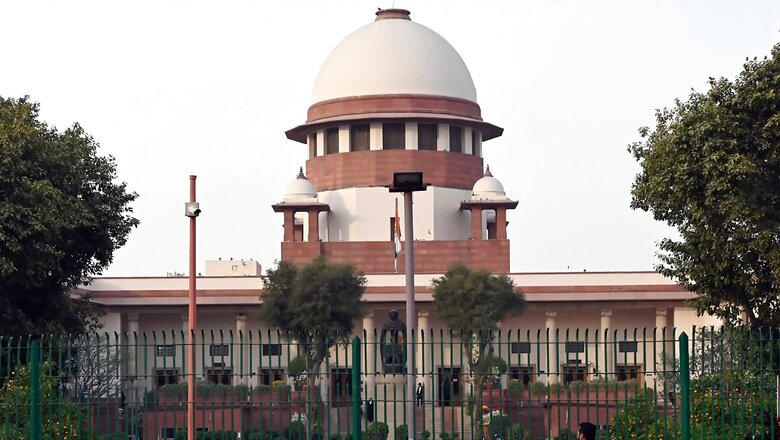
views
The Supreme Court has held that for invoking the provision for abetment of suicide under Section 306 of the Indian Penal Code, the accused must have encouraged the person to end his or her life or engaged in conspiracy with others to encourage the person to do so or acted or failed to act intentionally to aid the person to the offence.
A bench of Justices Vikram Nath and Satish Chandra Sharma explained the legal position while allowing an appeal filed by Rohini Sudarshan Gangurde against the Bombay High Court’s order, which rejected her plea against the trial court’s order, declining to discharge her in a case related to suicide of her husband, Sudarshan Gangurde.
The deceased aged 38, who worked as social service superintendent at a hospital, hanged himself to death on February 17, 2020, in his house at Shingnapur. An FIR was lodged on the basis of a complaint by his mother alleging mental and physical harassment and beating by the accused.
The couple had married in 2015 against the will of the members of both the families following a love affair. A male child was born to them, and they had jointly purchased a house in their name.
The police filed a charge sheet, alleging the accused harassed the deceased on account of money and for transfer of house in her name, forcing him to end his life.
The appellant woman contended the allegations against are her fake and frivolous as there was no evidence showing an active role played by her which abetted the commission of the offence. Further, she claimed, the dwelling house was jointly bought, therefore there was no question of insisting to transfer the house in her name.
Her counsel also pointed out neither the deceased, nor his family members have raised the grievance against alleged harassment before the authorities, until the suicide.
The state counsel, however, contended that the ingredients essential for the offence under Section 306 IPC were clearly made out from the evidence collected during the investigation and as such the High Court has rightly dismissed the petition.
After carefully considering the facts and evidence recorded by the courts and the legal position established through statutory and judicial pronouncements, the bench said, “We are of the view that there is no proximate link between the marital dispute in the marriage of deceased with appellant and the commission of suicide.”
The court found the prosecution has failed to collect any evidence substantiate the allegations against the appellant.
“The appellant has not played any active role or any positive or direct act to instigate or aid the deceased in committing suicide. Neither the statement of the complainant nor that of the colleagues of the deceased as recorded by the Investigating Officer during investigation suggest any kind of instigation by the appellant to abet the commission of suicide. There is no allegation against the appellant of suggesting the deceased to commit suicide at any time prior to the commission of suicide by her husband,” the bench said.
The court also noted none of the essentials of Section 107 read with Section 306 IPC are existing in the case at hand. The bench therefore set aside the High Court’s order and allowed the appellant’s application for discharge.
The court also relied upon the Supreme Court’s judgment in SS Chheena v. Vijay Kumar Mahajan (2010), in which the concept of abetment along with necessary ingredients was explained.
It also referred to Amalendu Pal v State of WB (2010), whereby this court explained the parameters of Section 306. The court also cited Ramesh Kumar v. State of Chhattisgarh (2001) in which the meaning of ‘instigation’ was explained.
In Gurucharan Singh vs State of Punjab (2020), all the principles and necessary ingredients of Section 306 and 107 of Indian Penal Code were reiterated and summarised by this court, the bench pointed out.




















Comments
0 comment